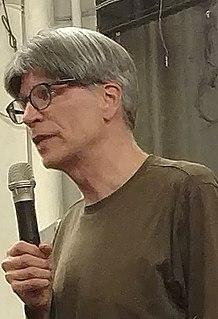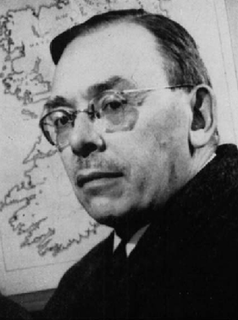A Quote by H. L. Mencken
Here is one of the fundamental defects of American fiction--perhaps the one character that sets it off sharply from all other known kinds of contemporary fiction. It habitually exhibits, not a man of delicate organization in revolt against the inexplicable tragedy of existence, but a man of low sensibilities and elemental desires yielding himself gladly to his environment, and so achieving what, under a third-rate civilization, passes for success. To get on: this is the aim. To weigh and reflect, to doubt and rebel: this is the thing to be avoided.
Quote Topics
Achieving
Against
Aim
American
Avoided
Character
Civilization
Contemporary
Contemporary Fiction
Defects
Delicate
Desires
Doubt
Elemental
Environment
Exhibits
Existence
Fiction
Fundamental
Get
Gladly
Himself
His
Inexplicable
Kinds
Known
Low
Man
Off
Organization
Other
Passes
Perhaps
Rate
Rebel
Reflect
Revolt
Sensibilities
Sets
Success
Thing
Third
Tragedy
Weigh
Related Quotes
To those who think that all this sounds like science fiction, we point out that yesterday's science fiction is today's fact. The Industrial Revolution has radically altered man's environment and way of life, and it is only to be expected that as technology is increasingly applied to the human body and mind, man himself will be altered as radically as his environment and way of life have been.
Time passes, as the novelist says. The single most useful trick of fiction for our repair and refreshment: the defeat of time. A century of family saga and a ride up an escalator can take the same number of pages. Fiction sets any conversion rate, then changes it in a syllable. The narrator’s mother carries her child up the stairs and the reader follows, for days. But World War I passes in a paragraph. I needed 125 pages to get from Labor Day to Christmas vacation. In six more words, here’s spring.
Man can will nothing unless he has first understood that he must count on no one but himself; that he is alone, abandoned on earth in the midst of his infinite responsibilities, without help, with no other aim than the one he sets himself, with no other destiny than the one he forges for himself on this earth.
Louis XIV was very frank and sincere when he said: I am the State. The modern statist is modest. He says: I am the servant of the State; but, he implies, the State is God. You could revolt against a Bourbon king, and the French did it. This was, of course, a struggle of man against man. But you cannot revolt against the god State and against his humble handy man, the bureaucrat.
That man can destroy life is just as miraculous a feat as that he can create it, for life is the miracle, the inexplicable. In the act of destruction, man sets himself above life; he transcends himself as a creature. Thus, the ultimate choice for a man, inasmuch as he is driven to transcend himself, is to create or to destroy, to love or to hate.
I would say that most of my books are contemporary realistic fiction... a couple, maybe three, fall into the 'historic fiction' category. Science fiction is not a favorite genre of mine, though I have greatly enjoyed some of the work of Ursula LeGuin. I haven't read much science fiction so I don't know other sci-fi authors.
This leads us to note down in our psychological chart of the mass-man of today two fundamental traits: the free expansion of his vital desires, and, therefore, of his personality; and his radical ingratitude towards all that has made possible the ease of his existence. These traits together make up the well-known psychology of the spoilt child.
There is not a single contemporary historical mention of Jesus, not by Romans or by Jews, not by believers or by unbelievers, during his entire lifetime. This does not disprove his existence, but it certainly casts great doubt on the historicity of a man who was supposedly widely known to have made a great impact on the world. Someone should have noticed.
If man--if each one of us--abdicates his responsibilities with regard to values; if each one of us limits himself to leading a trivial existence in a technological civilization, with greater adaptation and increasing success as his sole objectives; if we do not even consider the possibility of making a stand against these determinants, then everything will happen as I have described it, and the determinates will be transformed into inevitabilities.
Man is the only Patriot. He sets himself apart in his own country, under his own flag, and sneers at the other nations, and keeps multitudinous uniformed assassins on hand at heavy expense to grab slices of other people's countries, and keep them from grabbing slices of his. And in the intervals between campaigns he washes the blood off his hands and works for the universal brotherhood of man - with his mouth.
The regenerate man's desires are rectified; they are set on God himself, and the things above... Before, he saw no beauty in Christ, for which he was to be desired; but now he is all he desires, he is altogether lovely... regenerating grace sets the affections so firmly on God, that the man is disposed, at God's command, to quit his hold of every thing else, in order to keep his hold of Christ... If the stream of our affections were never thus turned, we are, doubtless, going down the stream into the pit.





































